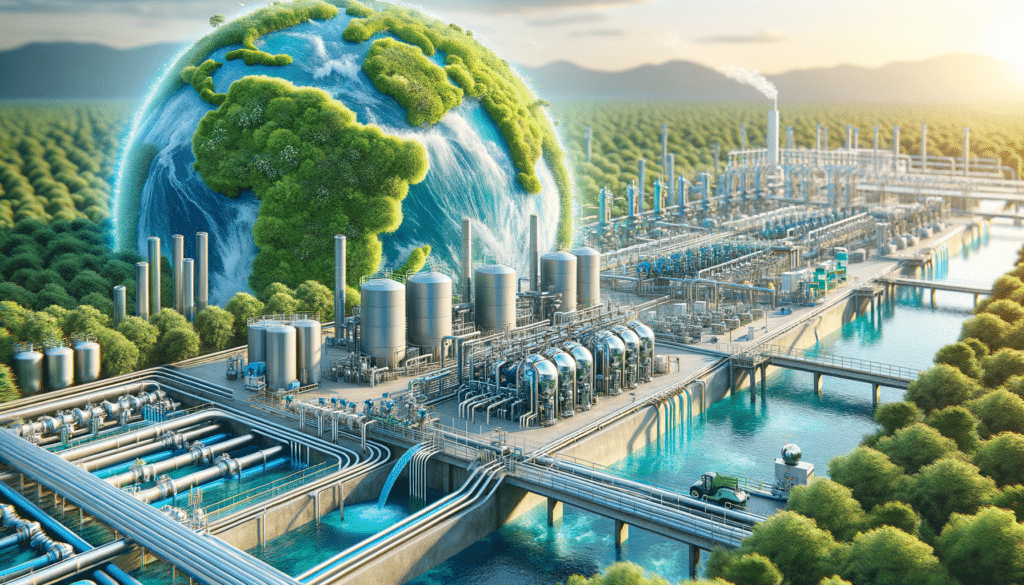Introduction to Water Treatment Companies
Water treatment companies play a pivotal role in managing one of the most precious resources on Earth: water. These companies are tasked with the responsibility of ensuring that water is clean, safe, and available for various uses, from drinking to industrial applications. With increasing global concerns over water scarcity, pollution, and climate change, the importance of these companies has never been more pronounced. They not only provide technical solutions for water purification but also innovate in areas such as wastewater management and water recycling, contributing to the sustainability agenda. As the demand for clean water continues to rise, these companies are at the forefront of technological advancements and policy development aimed at preserving this vital resource.
Technological Innovations in Water Treatment
The water treatment industry has seen significant technological advancements over the years. Innovations such as membrane filtration, ultraviolet disinfection, and advanced oxidation processes have revolutionized the way water is treated. These technologies have made water treatment more efficient and effective, allowing for the removal of contaminants that were previously difficult to eliminate.
- Membrane filtration: Offers a high level of contaminant removal with minimal chemical usage.
- Ultraviolet disinfection: Provides a chemical-free method to inactivate harmful microorganisms.
- Advanced oxidation processes: Capable of breaking down complex organic pollutants.
These advancements not only improve water quality but also reduce the environmental footprint of water treatment processes, aligning with global sustainability goals.
Challenges Facing Water Treatment Companies
Despite technological advancements, water treatment companies face numerous challenges. One of the most pressing issues is the aging infrastructure in many parts of the world, which can lead to inefficiencies and increased costs. Additionally, regulatory compliance is a constant challenge, as companies must adhere to stringent standards to ensure water safety.
Moreover, the threat of climate change presents new challenges, such as the increased frequency of extreme weather events that can disrupt water supplies and treatment processes. Companies must be resilient and adaptable, investing in infrastructure upgrades and innovative solutions to meet these challenges head-on.
The Role of Water Treatment Companies in Sustainability
Water treatment companies are crucial players in the global sustainability movement. By developing and implementing sustainable water management practices, these companies help conserve water resources and reduce environmental impact. Initiatives such as water recycling and reuse, energy-efficient treatment processes, and the use of renewable energy sources are becoming standard practices within the industry.
Furthermore, water treatment companies often collaborate with governments and non-governmental organizations to promote sustainable water policies and practices. Their expertise and innovation are essential in achieving the United Nations Sustainable Development Goal 6, which aims to ensure availability and sustainable management of water and sanitation for all.
The Future of Water Treatment Companies
Looking ahead, the future of water treatment companies is closely tied to the broader trends of digitalization, sustainability, and climate resilience. The integration of digital technologies such as artificial intelligence and the Internet of Things (IoT) is expected to enhance the efficiency and effectiveness of water treatment processes. These technologies can provide real-time monitoring and predictive analytics, allowing for proactive management of water resources.
Additionally, as the effects of climate change become more pronounced, the demand for innovative water solutions will increase. Water treatment companies will need to continue investing in research and development to stay ahead of emerging challenges and opportunities. By doing so, they will not only secure their place in the market but also contribute significantly to the global effort to manage water resources sustainably.





